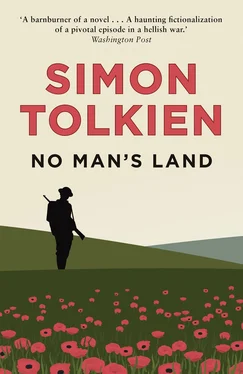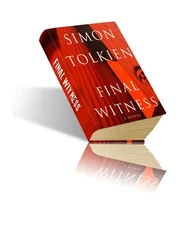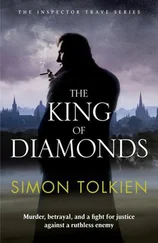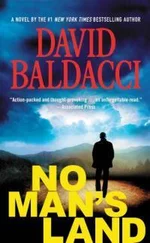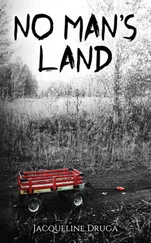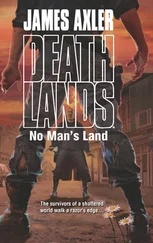‘Yes, it was,’ said Ernest, smiling. ‘There’s never been a better.’
‘Who scored the goal?’ asked Adam.
‘Rawdon. An’ ’twas Ernest that gave ’im the cross,’ said Luke. Adam liked the way Luke wanted to tell everything correctly, to ensure that everyone got the credit he deserved.
‘Will Rawdon be there today?’ asked Adam.
‘Yes, but there won’t be any trouble. I can promise thee that. It’s the game that matters,’ said Luke. And Adam believed him.
The football pitch was on the edge of the town. It was surprisingly well kept with nets behind the goals, benches for spectators, and a single-storey wooden pavilion for changing with a green and white scoreboard on the outside.
There were about fifteen boys already there when they arrived and they started playing almost straightaway. Adam was on Luke’s team. He could see Rawdon down at the other end of the field, standing between the other side’s goalposts.
‘You look like a runner,’ said Luke. ‘So try it on the wing. See what you think.’
The game was played at a frantic pace and the tackling was hard. Like the ball – when Adam headed it he felt as if he’d been hit with a lead weight, and Luke laughed. ‘Hurts the first time, don’t it? But you’ll get used to it.’
Several times they had to stop to reinflate the ball’s bladder and the boys drank water from the standpipe. Some of them had brought oranges and they ate them, leaning with their backs against the pavilion. Adam recognized several from the day of the fight but they were friendly now, united in their love of the game and the exhilaration of running in the open air after a week of working in the mine.
Near the end, when the score was tied at one apiece, Adam got the ball far out on the right and, instead of passing it as he had done up to then, he ran at the other side’s full back, feinting to the outside and then cutting back in, leaving his opponent wrong-footed as he went past. He looked up but there was no one on his team nearby and so he ran on, heading towards the goal where Rawdon stood waiting for him, holding out his arms to make himself big and cut off the shot.
Adam could see that Rawdon had positioned himself well and that the angle was too tight to score. He’d taken one too many strides and his only hope was to go round the goalkeeper. And so at the last moment, just as he was about to collide with Rawdon, he twisted his body to the left, kicking the ball away from Rawdon’s outstretched hand. Rawdon had already committed himself and, charging forward, he knocked Adam to the ground. It was a mirror image of what had happened on the day of the fight. One of the defenders rushing back was in time to kick the ball away and out of danger.
As Adam got to his feet, he found himself surrounded by the other players. They were arguing amongst themselves about what had happened; about whether Rawdon had committed a foul, whether there should be a penalty kick.
‘’E ran into ’im. There wor nowt Rawdon could do about it,’ said one.
‘Rawdon took ’is legs. The new kid would’ve scored if ’e ’adn’t,’ said another.
There was no referee to make the decision and Adam couldn’t see how they were going to resolve the dispute until Luke stepped in.
‘What do you think, Rawdon?’ he asked. ‘Was it a penalty?’
Rawdon hesitated, surprised to be asked. The rest of the players fell silent, waiting. Adam could see that it was a clever move by Luke. Would Rawdon take his own side or would he want to look fair? And the second choice also gave him a chance at glory if he could save the penalty kick.
He glanced at Adam, looking him up and down for a moment, and made his decision. ‘I reckon it was,’ he said. ‘But e’s got to take it. Not thee, Luke. You know our rules.’
‘Good,’ said Luke. ‘I agree.’ And he handed the ball to Adam, pointing at the almost invisible white spot painted into the muddy grass twelve yards from the goal.
Adam took four steps back and braced himself, trying to concentrate on the ball and not look at Rawdon, who was staring at him from the goalmouth. He’d decided to go to the left. He didn’t know why but he was certain of his decision, and yet the knowledge didn’t stop his heart thumping in his chest. It felt like a hammer beat, but there was no time left to calm down. It was just a kick, he told himself as he got ready to run; just one stupid kick, and yet in that instant he wanted it to succeed more than he could ever remember wanting anything. Perhaps he wanted it too much, which was why he half slipped as he went forward, scuffing the shot so that it lost most of its power as it travelled towards the middle of the goal. It should have been easy to save but Rawdon had read Adam’s intentions too well. He dived hard to his right and watched helplessly as the ball rolled past his feet into the net.
Adam’s team cheered. They’d won the match and it didn’t matter if the new boy had got lucky. He’d played well and he’d made the chance for himself. They laughed, clapping him on the back as they walked off, and even some of the other team’s players joined in. But Rawdon stood watching him with a look of concentrated hostility. He waited, leaning against a goalpost, until they were alone, facing each other.
‘It don’t matter what ’appened,’ he said, looking Adam in the eye. ‘It don’t matter how many goals you score. You don’t belong here wi’ us. An’ you niver will.’
He didn’t wait for a response but walked quickly away, limping slightly as he went.
‘What happened to Rawdon?’ Adam asked Ernest as they began the walk home. ‘Luke said he used to score goals so why’s he the goalkeeper now?’
‘He hurt his leg down the mine,’ said Ernest. ‘The pony he was driving got scared of something and bolted. And then pulled up short and kicked back – britching, we call it. Rawdon caught his leg in the limmers—’
‘Limmers? What are they?’ asked Adam, interrupting.
‘The shafts they put on the pony’s harness to link him up to the tubs. You don’t know anything, do you?’ said Ernest, smiling. ‘Any road, Rawdon broke his leg in three places. He must’ve been in agony – he was white as a sheet when they brought him out but he didn’t cry out at all. Rawdon’s always been a brave lad, I’ll say that for him. And then the hospital didn’t do a good job with the operation, or at least that’s what Rawdon’s father Whelan said, although I reckon he was just after trying to duck out of the responsibility. He should have been watching out for his boy. Rawdon was only thirteen when it happened and maybe he wasn’t ready for the tubs, although I suppose you’ve got to start somewhere. Except maybe with him it would have been different.’
‘What do you mean?’ asked Adam, not understanding.
‘Because of the football. Rawdon was really good, better than you can imagine. He could go round you before you knew what had happened, like he was picking your pocket,’ said Ernest, smiling at the memory. ‘And a lot of us thought he’d end up playing for one of the clubs, earning proper money, having a life that the likes of me can only dream about. But the mine’s got a way of claiming you back when you’re thinking of escaping it, and it’s got Rawdon for life now, whether he likes it or not.’
‘I suppose it would’ve been different if he’d stayed at school,’ said Adam. ‘Then he wouldn’t have got injured.’
‘I suppose,’ said Ernest. ‘But it’s not the way here. I got good marks at school and my mother would have liked me to go on, but my dad wouldn’t hear of it. Bought me a pair of moleskin trousers and a cloth cap for my fourteenth birthday and took me up to the manager’s office to sign on the next day. And that was that.’
Читать дальше
